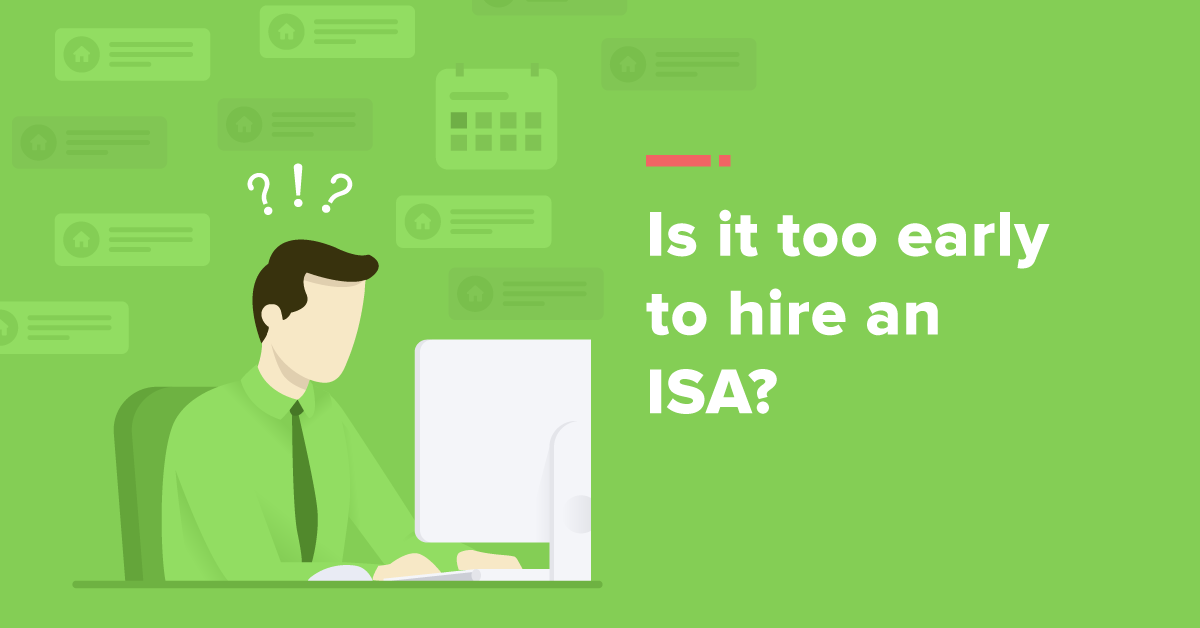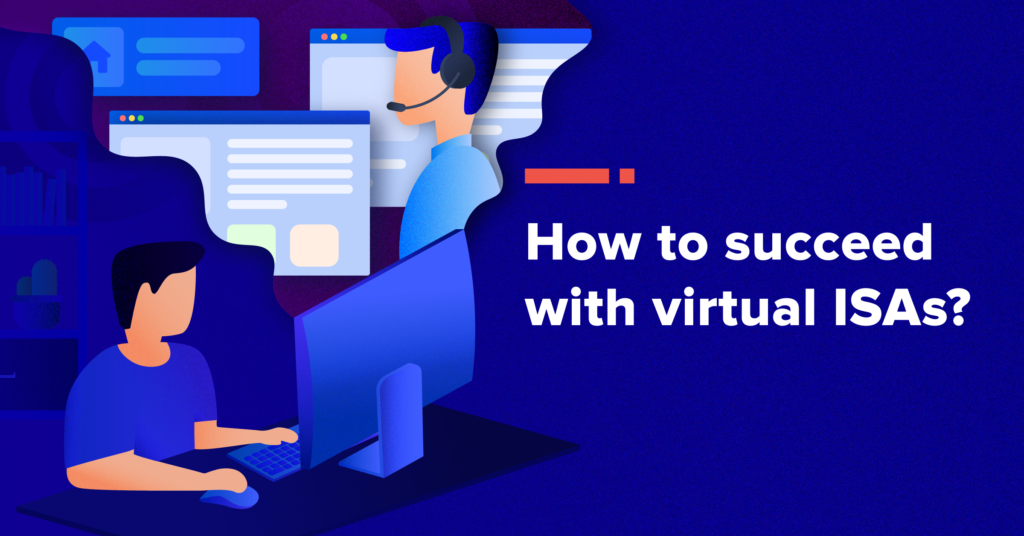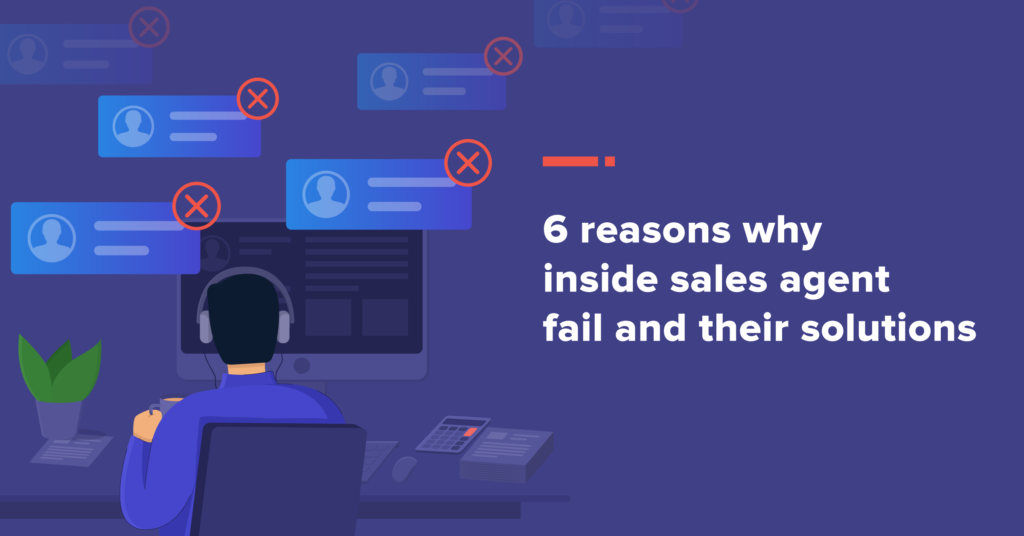
Are you aware of the hidden challenges you need to address before you hire your first ISA? Read this post to understand them to consequently increase your lead conversion rate.
51% of home buyers have found their dream home using the internet. In addition to that, 83% home buyers seek help from their agents to arrive at the right choice. Nonetheless, consultation with agents and discovering properties over the web go hand in hand for a majority of home buyers.
In essence, home buyers likely make up a major portion of your online leads and they need to be nurtured and qualified for a higher conversion rate.
If you are looking to grow within your market, the quickest way is to increase your online ad spend to generate more leads. However, at some point, you will need to hire an Inside Sales Agent (ISA) to help with all the work that online leads require.
What should an ISA be doing?
According to Brian Moses of NAEA, if you are doing 80 or more transactions per year, you absolutely need to hire an ISA to grow your business and increase your profitability.
Your ISA should be reaching out to all your online and offline leads, qualifying them, and warming them up for your agents to close. Specifically, there are two types of jobs ISAs should be performing:
- Qualifying new leads who are ready to buy within a short period of time
- Following up with unqualified leads over the long term and helping qualify them until they are ready to transact
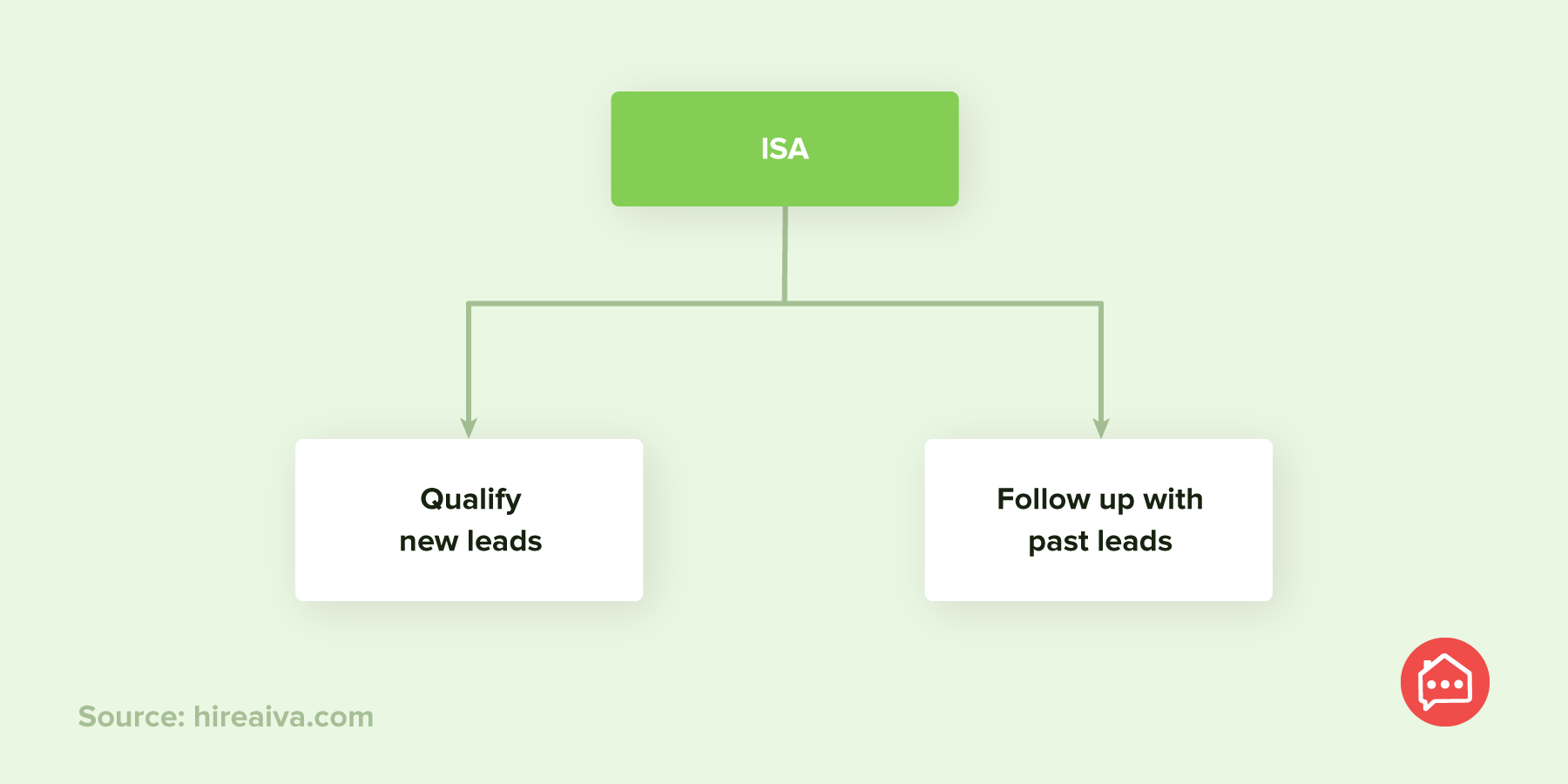
Is hiring one ISA enough?
The first question that probably pops up in your mind is whether one person can do both jobs effectively? The answer is, unfortunately, no.
According to Aaron Ross in Predictable Revenue (the tech startup bible for building sales teams), effective sales teams are built around specialization. Ross built a highly successful inbound sales team at Salesforce generating over a $100M+ in revenue for the company, and he did so by segmenting his sales team into distinct specialized functions.
He had a team of junior sales folks called Market Response Reps qualifying inbound leads coming in from online, phone, chat, and other channels. Once a lead was qualified, he or she was passed onto an Account Executive or an AE for the close.
“Market Response Reps qualify incoming leads that reach the company through the website or phone (usually driven either by internet search, word-of-mouth or marketing programs), and route qualified opportunities to the appropriate quota-carrying salesperson” -- Predictable Revenue
Not only is specialization important, it is also practical. Aaron Ross found that his Market Response Reps could not handle more than 400 leads a month. Even if you are generating a small number of leads each month, your ISA can get overwhelmed pretty quickly and will not have time to effectively follow up with your past leads.
For example, let’s assume you generate 100 leads a month with a 20% qualification rate, your ISA has to follow up with the 100 new leads you generate each month, 80 unqualified leads from the previous month, 80 unqualified leads from the month before, and so on. The numbers can add up pretty quickly.
If you want to set yourself up for success it is imperative you start with two ISAs, one responsible for qualifying new leads, and one for following up with past leads. However, if you are working with a limited budget and you can only hire one person for the job, what should they be doing?
Enter the First Response Agent (FRA)
Success stories of high achieving agents often feature a separate person that handles the first contact and qualification process, a First Response Agent (FRA) or a Market Response Agent (MRA).
Irrespective of the title, this person is responsible for contacting all new leads to determine how qualified each lead is, and then connecting transaction ready leads to your agents. Unqualified leads that not ready to transact for a variety of reasons are then sent to an ISA for a long term follow up plan.
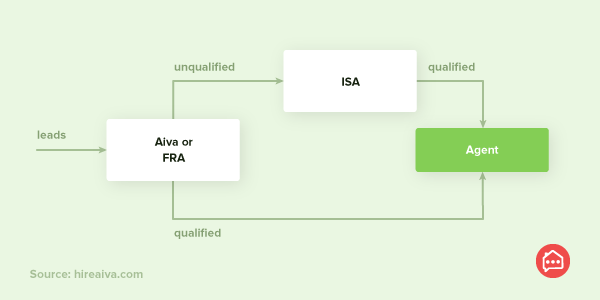
How your real estate lead conversion process should be structured
There are two distinct advantages of hiring an FRA over an ISA first:
Easier to train than an ISA
Unlike an ISA, an FRA need not be experienced with sales or real estate at all. A motivated new grad fresh out of school can be highly effective at the job. Give your FRA a simple qualification script or checklist, some basic phone and CRM training, and you should see immediate results. They will immediately save you hours of time each day chasing down new leads and surface qualified ones that are ready to transact.
Quicker Return on Investment
The majority of online leads convert at a single digit percentage, somewhere between 2-5% depending on the lead source and local market competition. Whereas unqualified leads generated in the past convert at a much lower rate and require more energy and effort to convert. Some agents estimate that new leads can have a conversion rate of 5%, meaning every 5 out of 100 converts, while only 1 out of 300 leads converts for old leads.
While an ISA is absolutely necessary to hire at a certain scale in order for you to continue growing your business, if you had to pick between the FRA and ISA for your first hire, starting with an FRA might be a better first step.
Setting your FRA up for success
Once you’ve found your ideal FRA and equipped them with the right training, how do you make sure they are set up for success?
Your FRA should only work evenings and weekends
An FRA that clocks in at 9AM and clocks out by 5P are likely to miss up to 80% of opportunities that your new leads generate. Your FRA needs to be working evenings and weekends since the majority of real estate leads are reachable only during these times.
Your FRA should not handle more than 300 to 400 leads a month
This seems to be the humanly possible number a leads a person can handle before their performance starts to erode. If you need to grow past this point, it might be wise to hire another FRA or use a lead conversion platform like Aiva to help manage the additional volume in a cost effective manner.
You should train your FRA on how to use your CRM system effectively
Most modern real estate CRM systems like Follow Up Boss or Real Geeks have features to incorporate an ISA or an FRA into your conversion workflow. Make sure your FRA is logging all conversation notes, lead activity, and qualification status of each lead so you and your agents can follow up effectively.
Conclusion
Hiring an ISA is a major step toward growing your real estate business. But if you’re expecting your ISA to be a generalist rockstar then you might be setting him or her up for failure. Instead, focus on specializing your team by hiring separate individuals for qualifying new leads (FRA) and following up with past leads (ISA). However, if you had to choose between the two, an FRA is definitely the better first hire.
 Aiva
Aiva
